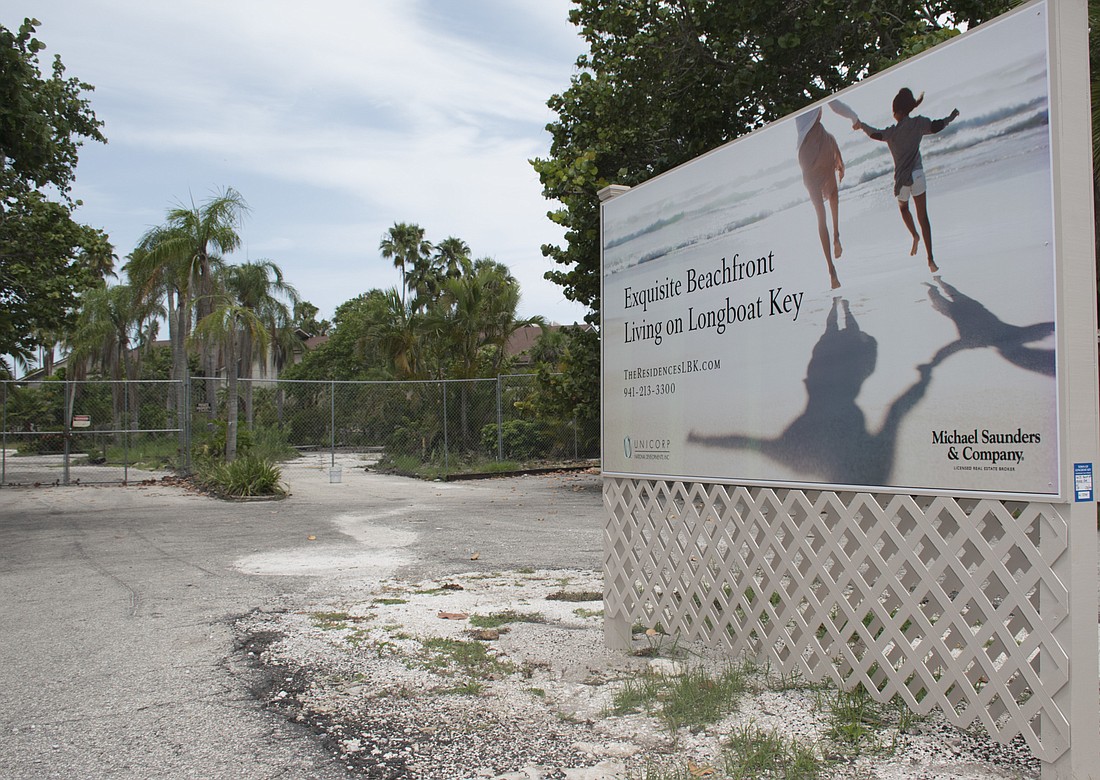- May 4, 2024
-
-
Loading

Loading

The town of Longboat Key is no longer violating the Constitution, as interpreted by the U.S. Supreme Court, now that it has passed a code to regulate signs based on time, place and manner — not content.
The Supreme Court in 2015 ruled that municipalities may not regulate signs based on content, a policy that Longboat Key practiced and had to quit enforcing when the ruling came from the nation’s highest court. The ruling indicated laws couldn’t regulate, say, church signs, differently than, say, yard sale signs or real estate signs.
But that changed July 9 when the town passed an ordinance to repeal and replace its zoning code with one that is designed to ignore content when permitting signs on the island.
The new code allows for two temporary signs: One that is 1-square-foot at any time and another that is 3 square feet only when a property is under contract for sale, rent or lease. Because the town is barred from regulating content, the bigger sign doesn’t necessarily have to promote that sale or rental.
A 1-square-foot additional sign (think: Pool Home, Canalfront, Sold) is allowed, too.
“Well, we did it,” Mayor George Spoll said after the ordinance passed with a 6-1 vote.
Commissioner Ed Zunz voted against the measure because he said he didn’t think it met the strict guidance given by the Supreme Court.
“[This code is] like saying if you have a white house you can have a 3-foot sign and if you have any other color you can’t,” Zunz said. “The criteria for who gets the bigger sign is absurd.”
But legal counsel for the town disagreed, saying the code as proposed, which is based on a template from the International Municipal Lawyers Association, has been vetted by federal courts.
The new rules passed with one amendment: an allowance for all nonconforming signs that were in place on or before July 9 rather than Dec. 27, as proposed by town staff.
The change to the rules came at the request of Unicorp National Developments, which sought the rule change to allow its sign at the site of the former Colony Beach & Tennis resort to stand until the project is complete.
While that sign is intended to promote the sale of units at the proposed St. Regis Hotel and Residences, Realtors at the town meeting were concerned about their ability to attract buyers to their properties.
Realtors have complained that the town’s new rules provide for yard signs that are generally smaller than typical signs posted when a home is for sale or rent.
“I think yard signs and hope house signs are important to our business,” said John Coutret, a Longboat Key resident and Realtor. “Please remember who benefits from these signs: the homeowner.”
But after a discussion about the constitutionality of the new rules for temporary signs — Zunz called the guidelines a “charade” — Zunz suggested commissioners approve an ordinance that allows just one temporary sign. That motion failed to get a second.
Max Brandow, a representative for the Realtor Association of Sarasota and Manatee, said in an interview that all things considered, the code came out “OK.”
“It’s not the ultimate result we wanted, but we avoided a smaller, more harmful result,” Brandow said.